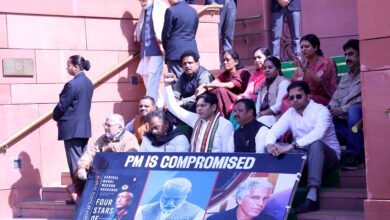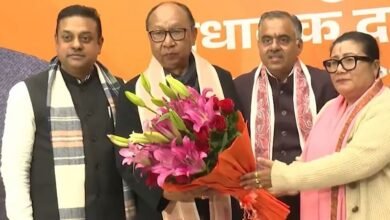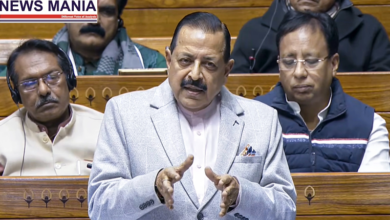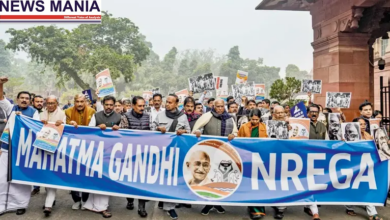Maharashtra elections are scheduled for this day, although it’s unclear which way the wind will blow.
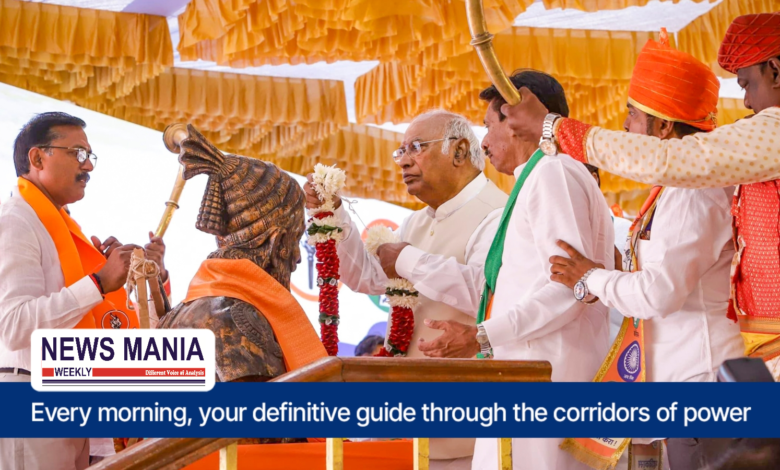
News Mania Desk / Piyal Chatterjee / 19th November 2024
Parties intensified their rhetoric as the Maharashtra election campaign came to a close on Tuesday, although it was unclear which way the wind was blowing. According to Vandita Mishra, the state’s people are talking about a “division” that is getting worse and the “paksh” or party being less and less relevant. They also note that voters’ mistrust of party politics appears to be on the rise.
“This erosion of trust will arguably influence the outcome of this election – but in a party-led representative democracy, it is also a warning bell in the long term that all political parties must heed,” Mishra writes.
After all, this is the first Assembly election since the “tod phod” (party split) of the larger Shiv Sena and NCP, which reduced the number of major candidates from four to six and fundamentally altered long-standing alliances by uniting unusual allies.
A media outlet discovered that voter disenchantment with parties and the ensuing focus on candidates is making election choices more unpredictable while traveling through the districts of Nagpur, Bhandara, Gondia, Wardha, Amravati, Akola, and Buldhana in Vidarbha, which includes some of the most underdeveloped areas in a state of stark regional inequality. The dilemma is whether localization benefits the BJP and its coalition, the Mahayuti, or the Congress and the Maha Vikas Aghadi, the alliance it heads.
There were four major parties in 2019. The Congress and the NCP were at odds with the BJP and its longstanding ally, the Shiv Sena. Sharad Pawar stepped in to create the MVA when the BJP and the Sena split over the chief ministership. Along with his NCP, he united the most unlikely of allies—the Congress and the Shiv Sena—on a single platform and appointed Uddhav Thackeray chief minister. The BJP formed the government after splitting the Sena in 2022 and the NCP the following year.
The situation is even more complex now, as seen by recent events. It makes poll forecasts even more challenging and dangerous when there are no prior benchmarks. Furthermore, even families like the Pawars have been split by politics. Despite their differences, the Pawar family from all over the world would meet together once a year. However, it is now a tough battle. In the Lok Sabha elections in Baramati, Sunetra Pawar faced off against Supriya Sule. It is now a do-or-die contest for the party’s leadership as Ajit Pawar, who has held the Baramati Assembly seat since 1991, faces off against his young nephew Yugendra, his brother’s son, who is running for the NCP (SP).
This misunderstanding shows up and nearly pushes the ideological debate to the side. According to Chowdhury, Maharashtra is now issuing multiple messages. The state, a center of industry and finance that depends on political stability, might be heading toward a more fragmented political system. The wide range of political actors in the contest also reflects India’s diversity, rising ambitions, and demands made by all factions for a piece of the action. However, they also highlight the increasing use of big money, government agencies, and fear as means of eliciting political loyalty.
and joining the conversation. Welfare and Hindutva were the two main topics of discussion throughout the poll, and the BJP nearly pursued both of them with new vigor. The BJP’s performance in the elections, where their score fell from 303 to 240, was attributed to a lack of cooperation. Maharashtra was one of the states where the BJP lost, as it only managed to secure nine seats. Deputy Chief Minister Devendra Fadnavis spearheaded the BJP’s enhanced coordination with the Sangh in an attempt to change direction. In seats where the party is losing ground, the RSS sent out its cadre. “There has been a system in place where the BJP and RSS share regular inputs every day along with course-corrective measures,” a source said.
The emphasis on Hindu unity has been reflected in the BJP’s campaign rhetoric, with Prime Minister Narendra Modi using the slogan “ek hai toh safe hai (Together, we are safe)” in his appeal to the Other Backward Classes (OBCs), Dalits, and Scheduled Tribes (STs) to guard against what it sees as the Congress’s divisive agenda. On the campaign trail, Uttar Pradesh Chief Minister Yogi Adityanath has also warned voters, telling them, “Batenge toh katenge (divided we fall).”
The BJP has resorted to Hindutva issues in an attempt to garner the Hindu vote because it is concerned about a Maratha-Muslim alliance behind the Maha Vikas Aghadi, fears that it will be hit by farm distress in rural areas, which comprise over half of the state’s constituencies, and wants to counter the opposition’s caste census strategy targeting backward groups.



